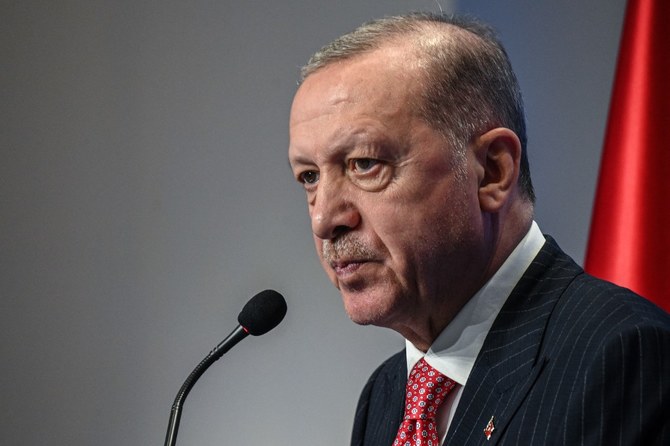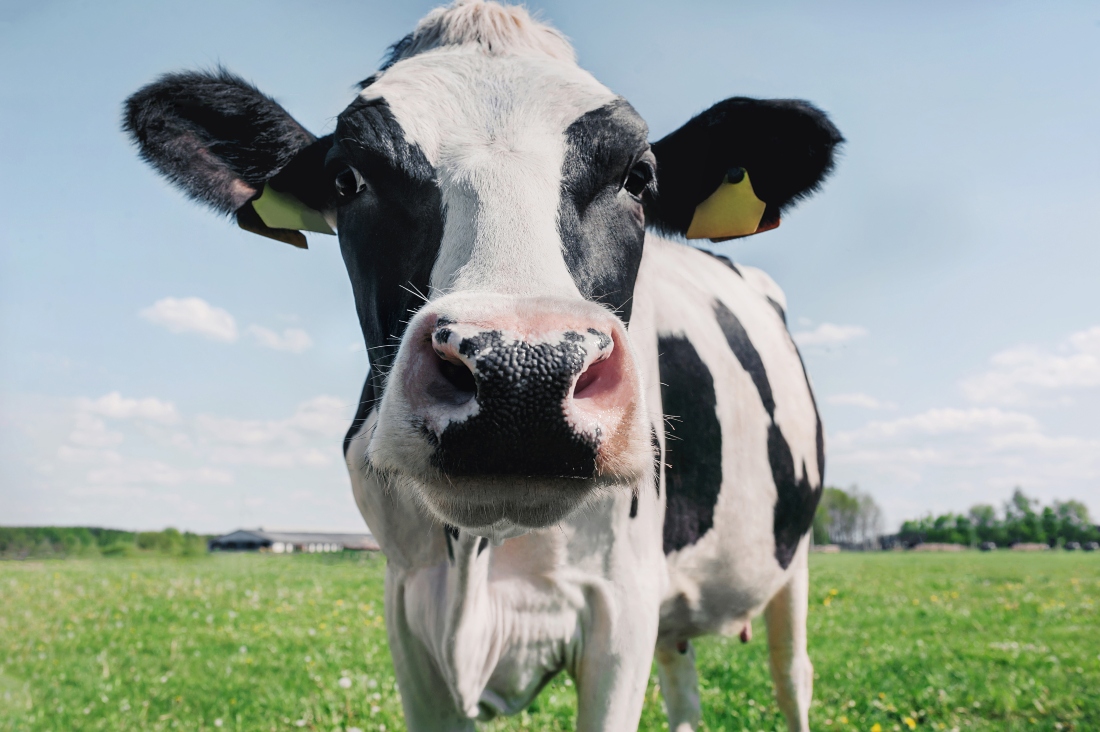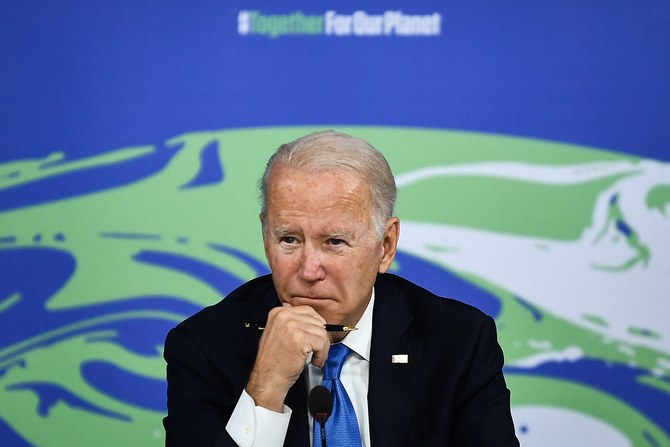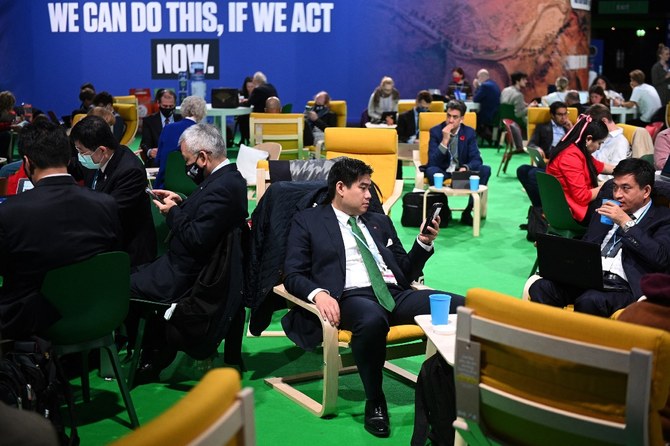GLASGOW: World leaders reached agreements on deforestation, curtailing methane emissions and as the initial phase of COP26 came to an end on Tuesday.
More than 100 countries, including the US, China and Brazil, signed a pledge to “collectively halt and reverse forest loss and land degradation by 2030 while delivering sustainable development and promoting an inclusive rural transformation.”
Meanwhile, US President Joe Biden launched a plan to reduce methane emissions, a gas that contributes significantly to global warming.
The announcement was part of a broader effort with the European Union and other nations to reduce overall methane emissions worldwide by 30% by 2030.
But there were also tensions with Biden accusing the leaders of China and Russia of making a “big mistake” by not attending the event.
Boris Johnson said he was feeling cautiously optimistic - but warned against “false hope”.
Here are the highlights of the events of day 2, Tuesday, as they unfold (all times are GMT):
07.40pm: Joe Biden wraps up the day with a final press conference in which he claims there had been historic progress during the opening days of COP26 on addressing global warming.
However, he took aim at Russian President Vladimir Putin and China's leader Xi Jinping for not attending, calling it a big mistake.

07.25pm: US President Joe Biden said that China’s leader Xi Jinping made a “big mistake” by not attending the Glasgow climate and G20 summits but said he hoped for talks to prevent conflict.
“It’s been a big mistake, quite frankly, for China not showing up. The rest of the world looked at China and said ‘what value are they providing?’,” Biden added.
06:15pm: Frank Kane has written a piece about President Joe Biden's cynicism towards other nations at COP26 and how a little less skepticism might persuade the rest of the world to follow his lead.
Opinion
This section contains relevant reference points, placed in (Opinion field)
05:20pm: UK Prime Minister Boris Johnson held a press conference in which he outlined some of the commitments made during the first two full days of COP26.
“We must take care to guard against false hope and not to think in any way that the job is done, because it is not - there is still a very long way to go,” Johnson said. “But all that being said, I am cautiously optimistic.”
He said they were still pushing to reach a target of $100 billion to help poorer nations. On China, Johnson said President Xi Jinping's absence from the conference “doesn't mean the Chinese are not engaging.”
Johnson also praised India for making a big commitment by saying it would increase its use of clean energy.

05:45pm: Read more of Arab News’ coverage on COP26.
Saudi ambassador to the UK: Kingdom ‘can lead world’ on climate change
Erdogan’s COP26 retreat an environmental, democratic failure: Experts
Greta Thunberg tells young protestors COP26 won’t help climate
03.54pm: Kuwait’s Prime Minister Sheikh Sabah Khaled Al-Hamad Al-Sabah affirmed Kuwait’s keenness to adopt a national low carbon strategy until 2050.
He said the national strategy is based on a circular carbon economy to promote the reduction, disposal, reuse and recycling of greenhouse gases.
Legislation and laws will be enacted to support the strategy to reduce emissions and adapt to their negative effects at the national level, in line with local, regional and international environmental obligations, Sheikh Sabah Al-Khaled added.

“Kuwait, in compliance with Paris Climate Agreement, updated its contributions document on Oct 12, 2021, whereby Kuwait contributes to a package of development projects based on a vision that would avoid an increase in greenhouse gases equivalent to 7.4 percent of its total emissions until 2035,” he said.
Sheikh Sabah Al-Khaled said that Kuwait attaches great importance to diversifying the country’s energy sources by introducing renewable energies and replacing fossil fuels with liquefied gas to ensure the sustainability of energy supplies for future generations.
03.24pm: Bahrain’s Crown Prince Salman bin Hamad said the kingdom is committed to reaching net zero by 2060 and has set a range of ambitious interim goals to ensure that we proceed without delay.
“By 2035, we will reduce emissions by 30 percent through decarbonization and efficiency initiatives and double our deployment of renewables from the targets we set at COP21,” he said.

“Our 2035 targets also include carbon removal solutions by quadrupling mangrove coverage, doubling tree coverage in Bahrain, and directly investing in carbon capture technologies, which we believe is essential,” Prince Salman added.
03.09pm: US President Joe Biden announced a joint US-UAE Agriculture Innovation Mission for Climate (AIM for Climate) “to catalyze public and private investment in climate-smart agriculture and food systems innovation” over the next five years.
#AIM4C has announced over $4bn of increased investments from 30+ countries for climate-smart agricultural innovation at #COP26. Backed by an additional 40+ non-governmental organizations, we intend to achieve technological breakthroughs & climate-smart solutions for agriculture. pic.twitter.com/QhTLTstLUj
— Agriculture Innovation Mission for Climate (@AIMforClimate) November 2, 2021
01.40pm: President Joe Biden thanks everyone who signed the "game-changing commitment" to reduce methane emmissions.
12:43pm: Turkish president Recep Tayyip Erdogan’s last-minute withdrawal from the COP26 Summit in Glasgow this week is yet more evidence of his disastrous environmental strategy and his inability to listen to his own people, experts have told Arab News.

12:38pm: Countries pledge 30% reduction in methane emissions.

12:30pm: Japanese PM Kishida says Japan is ready to offer up to $10bn in additional assistance for decarbonization in Asia
09:45am: China says President Xi Jinping was not given an opportunity to deliver a video address to the COP26 climate talks.
08:41am: BlackRock Inc says it has raised $673m for an infrastructure fund with backing from the French, German and Japanese governments to invest in climate-focused projects such as renewable energy in emerging markets.
06:00am : In an interview published today, the Saudi Arabian ambassador to the UK, Prince Khalid bin Bandar told Arab News that the Kingdom was “ready, willing and able” to lead the world in tackling climate change and global warming.
























